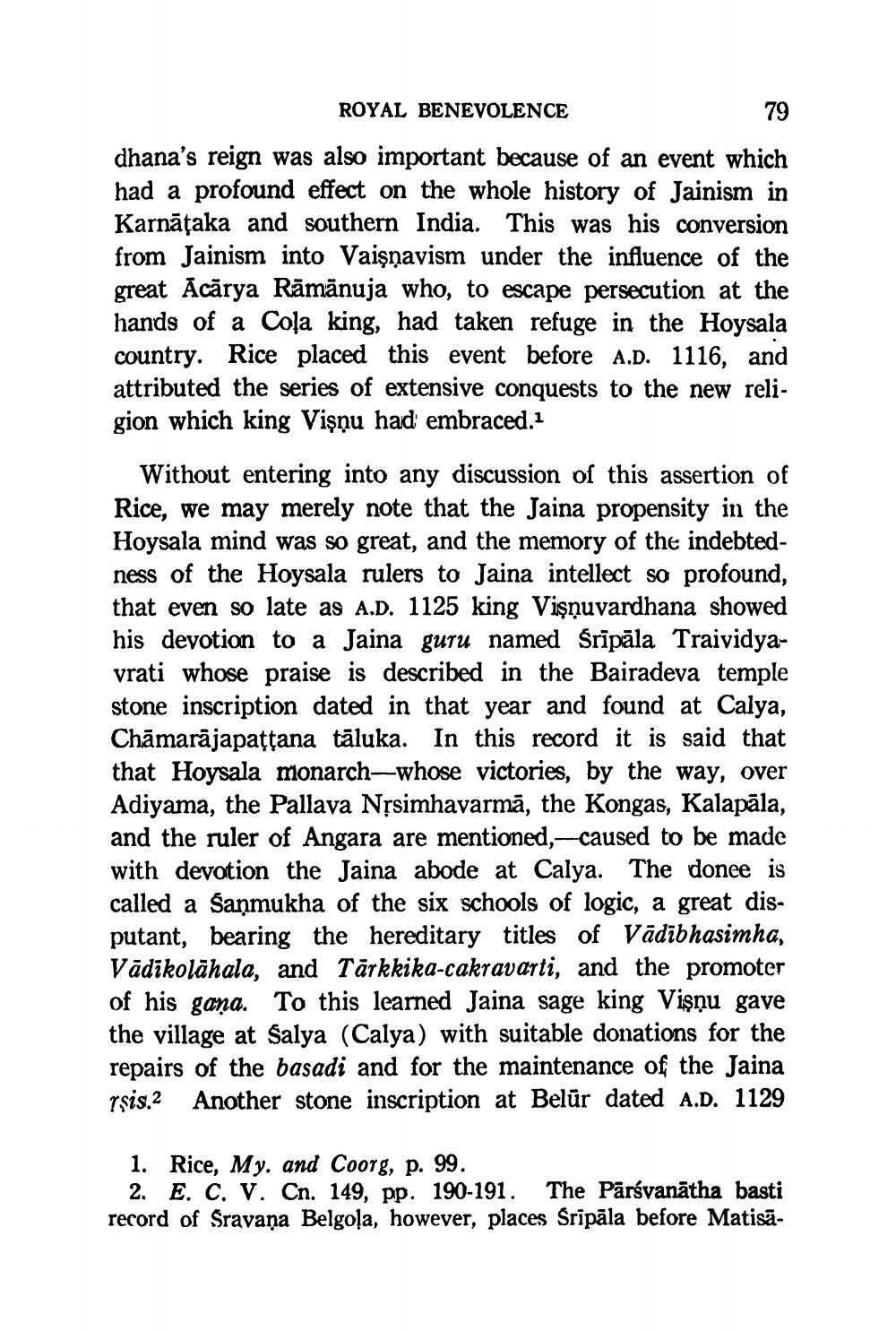________________
ROYAL BENEVOLENCE
79
dhana's reign was also important because of an event which had a profound effect on the whole history of Jainism in Karnataka and southern India. This was his conversion from Jainism into Vaisnavism under the influence of the great Acarya Rāmānuja who, to escape persecution at the hands of a Cola king, had taken refuge in the Hoysala country. Rice placed this event before A.D. 1116, and attributed the series of extensive conquests to the new religion which king Vişņu had embraced.1
Without entering into any discussion of this assertion of Rice, we may merely note that the Jaina propensity in the Hoysala mind was so great, and the memory of the indebtedness of the Hoysala rulers to Jaina intellect so profound, that even so late as A.D. 1125 king Vişnuvardhana showed his devotion to a Jaina guru named Srīpāla Traividyavrati whose praise is described in the Bairadeva temple stone inscription dated in that year and found at Calya, Chamarajapaṭṭana tāluka. In this record it is said that that Hoysala monarch-whose victories, by the way, over Adiyama, the Pallava Nṛsimhavarmā, the Kongas, Kalapāla, and the ruler of Angara are mentioned,-caused to be made with devotion the Jaina abode at Calya. The donee is called a Sanmukha of the six schools of logic, a great disputant, bearing the hereditary titles of Vädibhasimha, Vädikolahala, and Tarkkika-cakravarti, and the promoter of his gana. To this learned Jaina sage king Visņu gave the village at Salya (Calya) with suitable donations for the repairs of the basadi and for the maintenance of the Jaina rşis.2 Another stone inscription at Belur dated A.D. 1129
1. Rice, My. and Coorg, p. 99.
2. E. C. V. Cn. 149, pp. 190-191. The Parsvanatha basti record of Sravana Belgola, however, places Sripāla before Matisā




